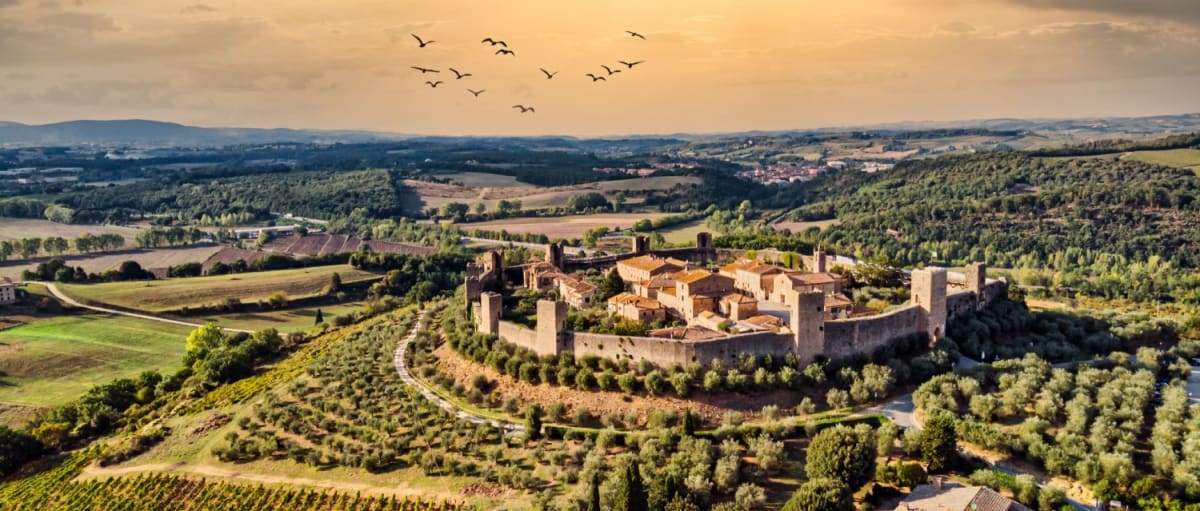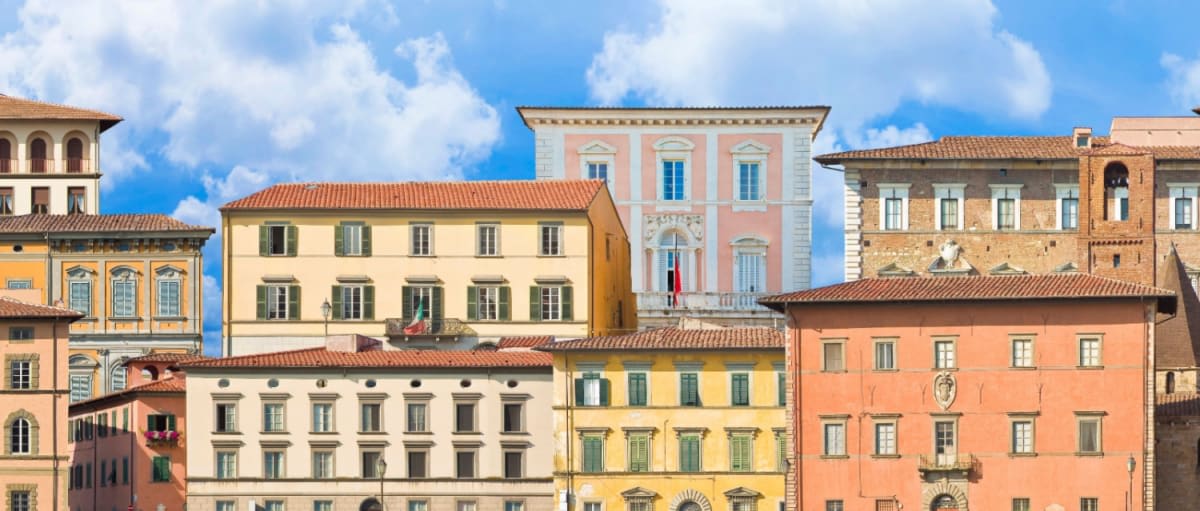Yes, you can afford a home in Italy – and here’s how to spend less doing it. From savvy negotiation to leveraging local tax breaks, there are plenty of ways to trim costs when buying a property in Italy – even beyond the one-euro home schemes.
Buying a home in Italy doesn’t have to break the bank. Indeed, it could cost you far less than expected, even when buying a fully restored property, ready to enjoy living in straight away. Because while Italy’s famous one-euro properties have got the headlines, most property in Italy is inexpensive by international comparisons.
While some upfront fees are non-negotiable, there are clever ways to reduce what you spend overall – from tax incentives in southern villages to picking the right renovation project. Here’s how you can make your money go further when buying in Italy.

Contents
- The unavoidable costs
- Government-backed savings
- Smart renovation choices
- Best-value regions in Italy
- Negotiating like a local
- Currency exchange: the silent cost
The unavoidable costs
Italy has a number of professional fees that are part and parcel of any property purchase. But being aware of them – and where there might be flexibility – will help you plan your budget and spot savings.
You may be tempted to skip some costs. For example the cost of the lawyer. After all, the notary will ensure the contract is signed correctly. However, this could well prove to be a false economy. Your lawyer acts for you, not the state (like the notary) or the seller (like the estate agent), and so will highlight any restrictions on use or any unfair contractual terms.
It is worth engaging and talking to your lawyer in advance and getting a quote for services. You may be able to argue them down. You may also save on, for example, not using Power of Attorney if you will be available in Italy. On the other hand, Power of Attorney might save you money for flights to Italy.
| Service | Typical cost | Can you save? |
|---|---|---|
| Notary (Notaio) | €1,500–€3,000 or 1–2.5% of property value | Fixed by law but varies by location and property value |
| Estate agent (Agente Immobiliare) | 3% of purchase price + VAT (22%) | Negotiable, especially timing of payment |
| Lawyer (Avvocato) | Varies – budget €2,000–€5,000+ | Shop around for fixed-fee services |
| Translator (Traduttore) | €250–€350 | Optional if you speak Italian |
Government-backed savings
You often hear, these days, of countries trying to deter tourists and other visitors. While Venice, Florence or Cinque Terre may be thriving, there are many beautiful parts of Italy that are keen to welcome new people.
Dwindling population incentives
Several towns in southern Italy offer cash incentives for relocating, such as Presicce Acquarica in Puglia, which pays up to €30,000 to new residents. These are designed to boost local populations and require buyers to become full-time residents.
One-euro homes
The famous one-euro property schemes are real – meet someone who did it! – but they come with strings attached. These homes need full renovations and are often in remote locations. While upfront costs are negligible, you must commit to restoring the property, often within a set timeframe and with approved materials.
Smart renovation choices
If a one-euro home isn’t for you, consider properties needing light renovation or those offered off-plan. These can be significantly cheaper upfront, especially if you’re able to live in or rent the property once completed.
Be aware that construction and permits in Italy can be time-consuming, so factor in the timeline and cash flow, and ensure you ask a lawyer before progressing too far.
However, a good technique when searching for under-valued property is simply to work out what you don’t mind, but others do. Some people would hate to live by a railway line and will avoid all such homes. If it’s not a problem for you, there’s an opportunity!
That goes for renovations too. There’s a reason why ‘kerb appeal’ is such a big factor in selling a property: most buyers cannot see past their initial first impressions. If you can see beyond an unappetising first impression and appreciate a cheap property’s potential, you can be quids in.
Best-value regions in Italy
Some areas in Italy offer far better value than others. Coastal hotspots like the Amalfi Coast or Taormina, or stunning locations like Lake Como, near Milan, command high prices. If you’re willing to look at less fashionable, but maybe no less beautiful locations your budget can stretch much further.
Regions such as Calabria, Molise, Abruzzo, Sicily and parts of Puglia can be considerably less expensive.
Additionally, southern villages with under 20,000 residents often offer a 7% flat tax for pensioners who become residents – a potentially huge saving if you’re retiring to Italy.
Negotiating like a local
Asking for a little off the asking price is, just like most countries, perfectly acceptable in the Italian property market. Keep these strategies in mind:
- Know the going rate: Research sold prices in the area to understand what’s realistic.
- Be pragmatic: Express interest but show you’re ready to walk away if it’s not the right deal.
- Lean on your agent: A good local agent will know when sellers are ready to budge on price.
Currency exchange: the silent cost
One of the most overlooked costs of buying in Italy is the impact of currency fluctuations. If you’re buying in euros but your savings are in pounds, your real cost changes with the exchange rate. Even a modest swing of just 2% could mean thousands more – or less – on your purchase, and that happens from week to week.
Banks typically offer less favourable exchange rates and fewer options. A currency specialist such as Smart Currency Exchange can offer a forward contract, letting you lock in an exchange rate and protect yourself from swings.
That certainty helps you stick to your budget – and can mean the difference between buying the dream property and falling short.
Speak to a currency specialist today
Conclusion
Buying in Italy is a dream that’s well within reach – especially if you’re smart about where and how you spend your money. With the right mix of research, negotiation, incentives and currency planning, you can own a beautiful Italian home without overspending. And that leaves more room in the budget for long lunches and local wine.








